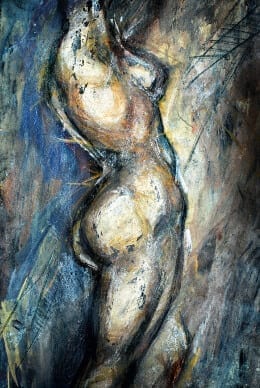Menopause and its accompanying discomforts include hot flashes, insomnia, and mood swings. A natural, but dreaded condition for American women, menopause does not seem to have nearly the same effect on women in China. It’s an interesting fact that 75% of American women experience noticeable menopausal discomfort, while only 10% of Asian women experience the same. It’s worth considering that some of the factors involved in this difference are dietary and traditional Chinese medicine (TCM) related, which are both comprised of natural elements, unlike the most common Western treatment for menopause: hormone replacement therapy.
Diet and Phytoestrogens in Traditional Chinese Medicine
The idea that food can be used medicinally is an inherent Chinese cultural belief, as well as a fundamental principle of TCM. The affect that diet has on one’s health is now commonly accepted. The three leading causes of death in the United States — heart attack, cancer, and stroke, are closely related to a poor diet. Research has increased the study of the relation between women’s health and plants and plant chemistry. Specifically, chemicals found in plants called “phytoestrogens”. Western and Eastern medicine agree that diet rich in phytoestrogens can reduce the adverse symptoms associated with menopause. The phytoestrogens that are bound to the body’s estrogen receptors release slowly and naturally into the blood stream, providing a continuing source of estrogen as the body’s naturally produced estrogen supply diminishes. When phytoestrogens are replenished by phytoestrogen-rich foods, a natural supply of estrogen will be present in the body, providing an alleviated process of menopause.
If you think a career in holistic medicine is something you would like to pursue, contact us and speak to an admissions representative to get started on your new journey!
Herbal Remedies and Lifestyle Adjustments for Menopause Relief
Ginseng and Dang Kui are herbs that can also help relieve some of the discomforts associated with menopause. These two herbs are often used in Chinese herbal medicine, combined with others in an herbal formula tailored to the patient. Chinese herbal formulas are often prescribed to help fatigue, headaches, insomnia, and depression during menopause. In TCM, a Kidney Yin Deficiency is thought to cause hot flashes and insomnia. After evaluating the patient, a practitioner would be able to create an herbal formula, like the Zhi Bai Di Huang Wan, which has been in use for hundreds of years and has been known to reduce hot flashes.
Traditional Chinese medicine values meals and holds the belief that food can be a form of medicine as well. Combine some of the tips here, and create a meal that includes phytoestrogens, something that involves soy, for example, which is high in phytoestrogens. A tofu stir-fry with fresh vegetables would be a good choice. Some simple dietary measures you can take to reduce menopause side-effects include cutting down on sugar and coffee intake, eating more tryptophan-rich foods such as turkey, bananas, and figs, and more foods with high indoles, like brussel sprouts and broccoli. A TCM practitioner can help you devise a diet plan specialized to your needs, as well as provide safe, natural alternatives to Western hormone therapy for menopause care.
Featured Posts:

